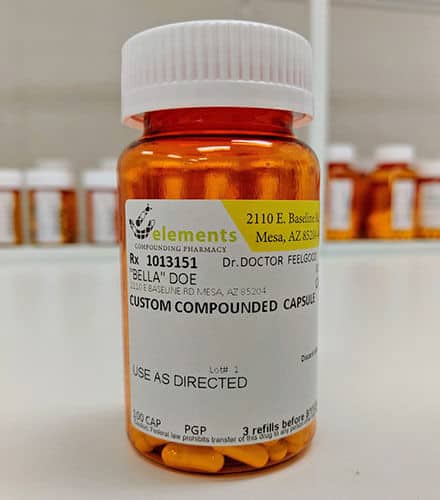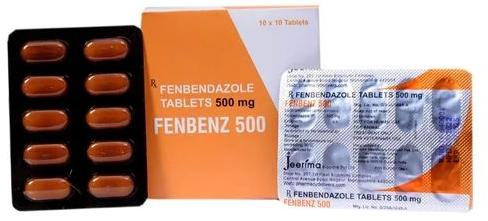fenbendazole: A Full Breakdown for Pet Owners
Wiki Article
Recognizing the Advantages and Uses of Fenbendazole in Vet Medication
Fenbendazole has developed itself as a vital anthelmintic in vet medicine. Its capacity to target different parasitic infections makes it a beneficial tool for veterinarians. The drug's device disrupts necessary cellular processes in bloodsuckers, resulting in efficient therapy results. However, its safety profile ranges species, requiring cautious consideration in its use. Recognizing these characteristics can clarify fenbendazole's wider implications in veterinary treatment and continuous research study right into its potential past traditional applicationsSystem of Action of Fenbendazole

Common Parasitical Infections Dealt With With Fenbendazole
A selection of parasitical infections are successfully treated with fenbendazole, making it a flexible option in veterinary medication. This anthelmintic agent is especially reliable against nematodes, consisting of roundworms and hookworms, which commonly influence pet dogs and felines. It is also used for the therapy of cestodes, such as tapeworms, providing a broad range of action versus both types of intestinal parasites. In addition, fenbendazole is helpful in managing infections caused by protozoa, especially Giardia, which can lead to stomach distress in animals. Its efficacy includes dealing with specific lungworms in canines and felines, dealing with respiratory health and wellness worries linked to these bloodsuckers. Overall, fenbendazole's capacity to target several parasitical varieties makes it a useful device in vet practice, guaranteeing the health and well-being of family pets influenced by these usual infections.Security and Efficiency in Different Animal Species
The safety and effectiveness of fenbendazole differ amongst different pet species, emphasizing the importance of species-specific considerations in vet medication. In canines, fenbendazole is typically well-tolerated and effective against a series of stomach bloodsuckers, consisting of roundworms and hookworms. For felines, nonetheless, its usage is much less common and may need cautious application because of prospective damaging responses.In animals, such as cattle and sheep, fenbendazole shows performance versus numerous endoparasites, adding to enhanced health and efficiency. Nonetheless, the pharmacokinetics and prospective adverse effects can differ substantially between species, necessitating careful examination by veterinarians.
Horses likewise respond favorably to fenbendazole, especially for dealing with strongyles and ascarids, though dosage and management courses have to be tailored to their one-of-a-kind physiology. Recognizing these distinctions is crucial for enhancing therapy outcomes and making certain animal well-being throughout diverse types.
Management and Dosage Guidelines
Proper management and dosage guidelines are crucial for maximizing the therapeutic impacts of fenbendazole while lessening prospective side impacts. The dose generally differs depending upon the varieties being dealt with, the certain condition, and the formula of fenbendazole utilized. fenbendazole. For dogs and pet cats, a common dose is 50 mg/kg body weight, administered as soon as daily for 3 successive days, however veterinarians might adjust this based upon specific wellness evaluationsIt is essential to administer fenbendazole with food to improve absorption and minimize gastrointestinal trouble. The drug is offered in various kinds, including granules and paste, allowing for flexible administration alternatives. Monitoring the pet's reaction during and after therapy is suggested to verify effectiveness and safety. Furthermore, veterinary assistance is essential to figure out the ideal period of treatment based upon the type of parasitic infection being addressed, assuring optimal results for the pet's health.
Future Viewpoints and Research on Fenbendazole
site here Study on fenbendazole continues to evolve, concentrating on its prospective applications beyond traditional antiparasitic usages. Current researches have actually discovered its effectiveness in treating various forms of cancer cells, especially in vet oncology. Initial information recommend that fenbendazole may inhibit the development of lump cells and enhance the effects of other chemotherapeutic representatives.Additionally, researchers are examining its role in taking care of gastrointestinal conditions in pets, highlighting its anti-inflammatory homes. The flexibility of fenbendazole for different types questions regarding its safety and security profiles and ideal dosing regimens in diverse populations.
As interest expands, there is a demand for detailed professional tests to develop evidence-based standards for these unique applications. Future research might also check out the devices behind fenbendazole's results, possibly read this post here paving the way for innovative restorative approaches in veterinary medicine. The ongoing expedition of fenbendazole can greatly boost treatment alternatives for various vet problems.

Often Asked Inquiries
Is Fenbendazole Safe for Pregnant Animals?
The security of fenbendazole for expectant animals remains uncertain. While some research studies recommend minimal danger, vets normally suggest care and commonly discourage its use during pregnancy unless the benefits clearly outweigh possible dangers.Can Fenbendazole Be Used in Livestock?
Fenbendazole is frequently made use of in animals to deal with browse this site different parasitic infections. 222 mg. Its efficiency against stomach worms makes it an important anthelmintic, adding to boosted health and efficiency in pets increased for food and fiberWhat Are the Adverse Effects of Fenbendazole?

The negative effects of fenbendazole may consist of intestinal disruptions, sleepiness, and allergic reactions. In rare situations, a lot more extreme responses can occur, requiring careful surveillance and consultation with a veterinarian during treatment.
Exactly How Does Fenbendazole Compare to Various Other Dewormers?
Fenbendazole uses broad-spectrum efficiency versus numerous parasites, commonly contrasting positively to other dewormers. Its special mechanism targets various life stages, making it reliable, while typically offering a desirable security account compared to choices available on the marketplace.Can Fenbendazole Be Utilized for Treating Cancer in Pet Dogs?
The possibility of fenbendazole in treating cancer in animals has amassed passion. Preliminary researches recommend it might inhibit cancer cell development, yet further research study is necessary to verify its efficiency and safety in veterinary oncology.Report this wiki page